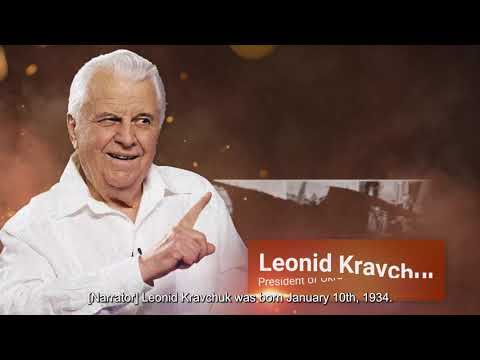Ukraine is a country that was unknown to most citizens of the United States,
Tag: Ukraine
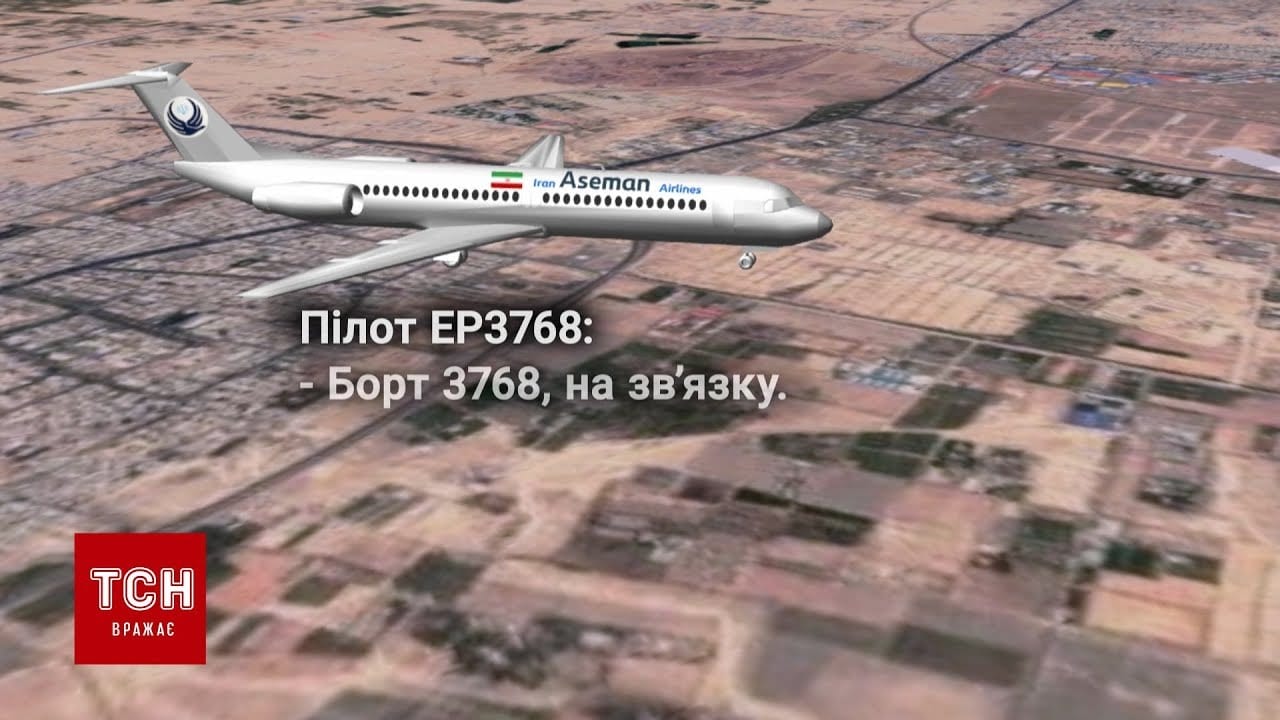
The record proves that the Iranians saw the missile from the moment it was launched and to the very moment it hit the Ukrainian plane.
In breaking news from Ukraine, intercepted communications were released by TSN.Tyzhden between Tehran Airport tower and second pilot of Iran’s Aseman Airlines flight at the time of the crash of Ukraine International Airlines flight PS752. The Iranian civilian plane’s pilot saw both the missile launch and the blast, audio recordings, TSN says were received from intelligence services, prove. “But most importantly, the record shows that Iranian airline services didn’t simply conceal the true cause of the UIA plane crash.
The record proves that the Iranians saw the missile from the moment of launch and to the very moment it hit the Ukrainian plane,” the report says. The Ukraine Airlines flight PS752 took off from Tehran Airport at 6:20 on January 8, 2020. At the same time, the Iranian flight Shiraz-Tehran, EP3768, operated by Aseman Airlines was preparing to land in Tehran. In about three minutes, an Iranian pilot saw a missile being launched.
The following is a complete transcript of intercepted communications between Tehran tower and flight 3768 (including a bit between tower and PS752).
The recording time is 05:12 Tower: – Good morning, Ukraine International Airlines 752 (inaudible), departure identified alt 260, climb to 6000 feet, turn right to Paroch.
Tower: – After 6000 feet to Paroch.
Pilot EP3768: – We are approaching from the north, 3768.
Tower: – Good morning, 3768.
Tower: – Aseman 3768 (inaudible), identify 3343 left, level 110.
Pilot EP3768: – Flight 3768, come in.
Pilot EP3768: – We are approaching from the north, 3768.
Pilot EP3768: – No, sir? Pilot EP3768: – Zone 320, active for passage? Tower: – GPS (inaudible).
Pilot EP3768: – Flares on route, as if from a missile. Should anything like this be happening there?
Tower: – Zone 320? How many miles away? Where? EP3768
Pilot: – Can’t say for sure. But I think it is near (air field) Payam, (city) Karaj.
Tower: – How many miles? Where?
Pilot EP3768: – I now see the light as it flies off of there.
Tower: – We were not informed of this.
Tower: – How does it look like? What does this light look like?
Pilot EP3768: – That surely is the light from a missile.
Tower: – It’s not flying toward the city (Tehran), is it?
Pilot EP3768: – It might be… Oh, no it was flying from the direction of the city.
Tower: – We were informed nothing, but keep watching.
Pilot EP3768: – Okay. I’m getting on the landing course.
Tower: – “Ukraine International Airlines” 752, do you read?
Tower: – “Ukraine International Airlines” 752, do you read?!(message repeated several times from 02:27 to 04:25, unanswered)
Tower: – “Aseman” 3768, 9000 (inaudible), landing course.
Tower: – “Aseman” 3768, everything, you see nothing else up there?
Pilot EP3768: – Mr engineer, we saw an explosion, a big flare from the explosion, we don’t understand what it is.
Tower: – We don’t know for sure…
Pilot EP3768: – Is our course OK?
Tower: – Yes, I don’t think there will be any problem for you.
Pilot EP3768: – God forbid!”
As UNIAN reported earlier, on the morning on January 8, a Ukrainian passenger jet operated by Ukraine International Airlines, flight PS752 Tehran-Kyiv crashed shortly after takeoff from the Tehran airport. All 167 passengers and nine crew on board died in the crash. The whole crew and two passengers were Ukrainian citizens. The next day, 45 Ukrainian experts in various fields took off to Tehran to examine the circumstances of the incident. All Ukrainian carriers suspended flights in the Iran and Iraq airspace pending probe.
From the outset, the Iranians said that it was a technical issue that caused the crash. However, on the evening of January 9, several leading U.S. editions and TV channels reported that the Boeing 737-800 operated by Ukraine International Airlines had been mistakenly shot down by Iran shortly after taking off from Tehran Airport. Photos of video footage showing missiles that could have downed the plane, as well as video of the moment of the crash, were shared on social media and made it to global news. Canadian Prime Minister Justin Trudeau and UK Prime Minister Boris Johnson, citing intelligence and allies, said the plane was hit by an Iranian ground-to-air missile. U.S. President Donald Trump called the plane crash suspicious, adding he believed that the plane could crash over certain “mistakes” made in Iran. The next day, Ukrainian experts, who worked at the scene and eventually gained access to the wreckage of the jet’s front part, also found evidence of the missile hit.
On the morning of January 11, Iran officially acknowledged that the Ukrainian passenger jet was downed by a missile. The official statement said that the tragedy had happened as a result of a “human error”. The civilian plane was mistaken for a hostile object after it turned toward a military facility operated by the Islamic Revolutionary Guard Corps. Iranian President Hassan Rouhani called the tragedy “an unforgivable mistake” and said the country would continue to investigate the incident. In his turn, Ukrainian President Volodymyr Zelensky said that “It wasn’t a good morning but it brought us truth.” Zelensky responded to Iran’s statement confirming the UIA was hit by a missile, saying that Ukraine expects Iran to fully acknowledge the guilt for downing the UIA plane, investigate the incident, and repatriate the bodies of victims.
Source: https://t.me/PS752/121
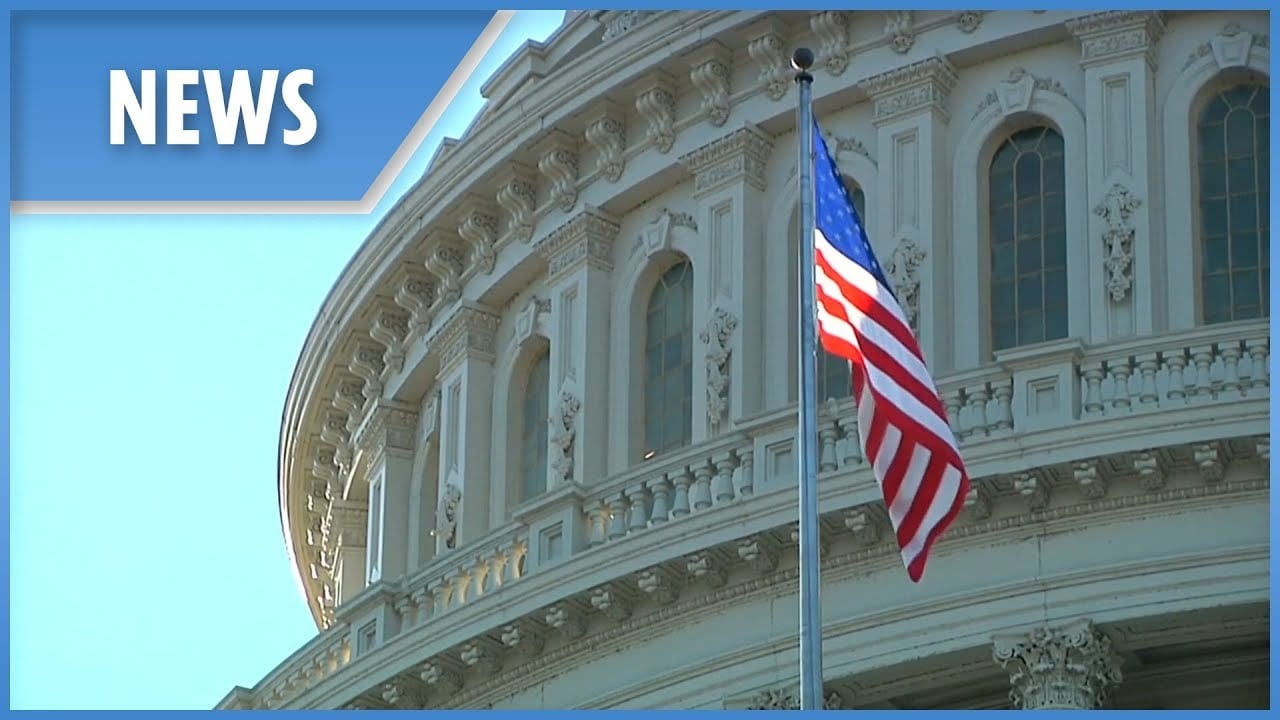
Not so long ago, last fall, I was surprised to read an article by the acclaimed Associated Press, claiming that radical and nationalist values are being imposed on children in Ukrainian camps.
The piece was authored by a Belarus national Yuras Karmanau, who covered the story one-sidedly and manipulatively, thereby putting the AP in an embarrassing position. This resulted in AP ultimately issuing a correction to the story as an apology.
An apology is fine, of course, but back then, in 2018, Karmanau’s article (not) surprisingly sounded to the tune of Russian propaganda, much to the pleasure of the latter. And although the Associated Press admitted the mistake, very few people in the post-Soviet space are aware of this because Russian mass media have flooded the information space with translations of the initial text. They didn’t do so with AP’s refutation piece though. So the myth created by Karmanau is still alive in the Russian Internet segment.
However, as you understand, this is only a prelude. A prelude to realizing that the same journalist’s article titled «Ukraine ex-PM accuses president of corruption» published Feb 4, where one of Ukraine’s presidential candidates Yulia Tymoshenko accused President Petro Poroshenko of corruption, is not simply a campaign thing but, once again, a play into the hands of the Kremlin propaganda.
First, Yulia Tymoshenko’s statements have long featured in plenty of journalistic investigations with a notion that this politician is more likely to lie than tell the truth.
Second, the Associated Press platform is once again used beyond its intended purpose – not as an impartial news resource but as a playground for political PR and – I’ll say this again – indulging Russian propaganda. After all, it is common knowledge that Petro Poroshenko is a leader who is extremely inconvenient for the Kremlin, so Moscow is ready to support any other runner for Ukraine’s top post other than the incumbent president. To be more exact, any of them, but it better be «theirs.»
Thirdly, it is difficult to take seriously the words of someone, whose work as prime minister was marked with a volume of funds siphoned from Ukraine doubling.
According to a research by FactCheck, when Viktor Yanukovych was prime minister in 2007, some $7.18 billion was illegally withdrawn from the country, while in 2008, when Yulia Tymoshenko took the reins, it was already $16.92 billion. In total, the amount of funds siphoned from Ukraine throughout the period of Yulia Tymoshenko’s premiership reached $33.12 billion
Fourth, and most important, is that this article not only highlighted a subjective opinion of the interested party, but also, along with the infamous story about children in Ukrainian camps being radicalized and taught to kill, worked in favor of Russian propaganda, which has become very keen on exploiting corruption-related topics in its hybrid infowar against Ukraine.
In a matter of hours, hundreds of Russian bots joined their efforts in spinning the Tymoshenko piece across social networks. The article was shared and republished, for a certain fee, in all sorts of media, forums, and information sites. I wonder whose money it was. And it’s big money, too!
These are the shares and reprints that will not go anywhere even if the Associated Press releases another correction. These are the shares and reprints that for another two months will be maintaining an information background, being revived in new references of all sorts.
It’s a shame that yet another Kremlin narrative has been sown in the minds of readers worldwide, and it is very unfortunate that the Associated Press platform has become a direct participant in the distribution of such unprofessional and manipulative content, which is very beneficial for the Kremlin, one of the parties to the Ukraine conflict.
Sergei Bolotin
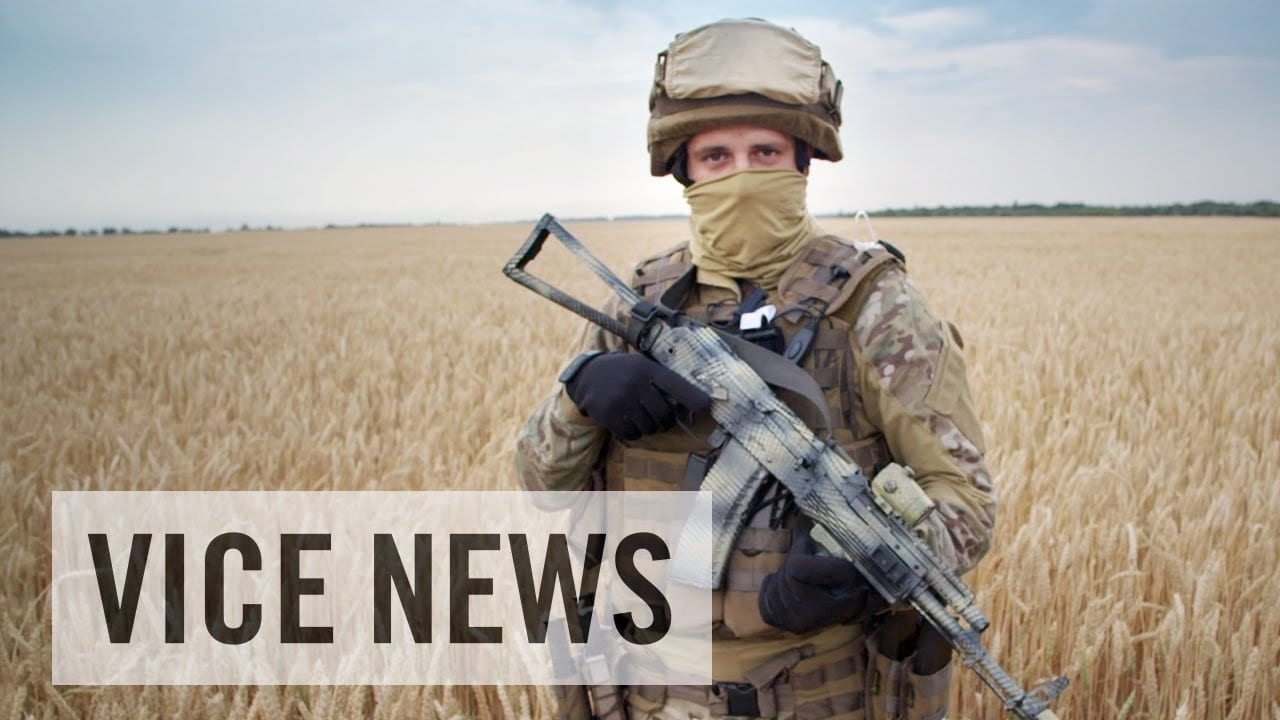
Russia is making little effort to disguise its leadership role in the self-proclaimed people’s republics in eastern Ukraine. Putin needs the regions to blackmail Kiev.
Does anyone still remember Donetsk? Europe, it seems, has long since forgotten the place. And yet there’s still a war going on there — one that has lasted longer than Hitler’s campaign against the Soviet Union. Soldiers and civilians on both sides die there almost daily.
On Sunday, Donetsk was back in the headlines because of elections held in the self-proclaimed Peoples’ Republics of Luhansk and Donetsk. The European Union and the United States aren’t recognizing the vote because it represents a violation of the Minsk agreement. Kiev has described it as a farce, saying the elections have nothing to do with the will of the people. And Russia? Moscow is once again trying to convey the impression that it nothing to do with the ballot.
Sunday’s election does in fact deserve attention, because this time they were less a provocation than the product of political negligence. It goes back to Aug. 31, the day of the assassination of Alexander Zakharchenko, the head of state and prime minister of the Donetsk People’s Republic. When he and a handful of supporters entered a cafe that evening just around the corner from the government’s headquarters, an explosive device went off above the entrance.
International Newsletter
There is much to learn from what happened in the wake of the Donetsk assassination. First and foremost: Russia doesn’t particularly care about honesty when it comes to its dealings with the people of the eastern Ukrainian separatist republics.
After the explosion, Moscow — which always seems to view offense and the best form of defense — immediately accused Kiev of murder. The elimination of Zakharchenko, the Russian Foreign Ministry said, meant that Ukraine was transforming the hostilities in the Donbass region into a “bloody war.” The head of Russian parliament, the Duma, said he viewed the ongoing peace negotiations as having ended in failure and that the assassination “resets the meaning of the Minsk agreements to zero.” The same day, security forces in Donetsk reported they had arrested “Ukrainian saboteurs” responsible for the murder and that they would soon reveal the men behind the slaying. But that never happened. Soon, there was no longer any talk of the alleged saboteurs either. There is now broad consensus that Zakharchenko was either killed by Russian forces or by people from within his own camp.
Zakharchenko, who took power as prime minister of the Donetsk Republic in 2014 and later declared in an interview with DER SPIEGEL that he wished for a “Russian spring” in Donetsk and Crimea, was considered obstinate and difficult to control. Insiders in Moscow say that for the months before his assassination, he had been under a kind of house arrest. In an hours-long meeting with a high-ranking Western diplomat, which would prove to be his last with a foreigner, Zakharchenko said he was soon planning to step down from his post. By that point, however, he no longer had things under control.
As with Zakharchenko, a number of high-ranking separatists and commanders have either been sidelined or toppled in recent years. At the end of last year, it was the turn of Igor Plotnisky, the leader of the neighboring Luhansk People’s Republic. He wasn’t killed, but he fled to Russia. Zakharchenko and Plotnitsky are both signatories to the 2015 Minsk Agreement, alongside François Hollande, Angela Merkel, Petro Poroshenko and Vladimir Putin. They were supposed to be guarantors of peace in eastern Ukraine.
Cleaning Up
It was a role they never lived up to. Instead, they did as they pleased and relied on criminal methods to secure their power. And all of it was accepted by Moscow in order to maintain their story that local representatives of the people governed in Donetsk and Luhansk. Then came the assassination. Even Putin’s own people can’t seriously believe in the idea of a Kiev-backed conspiracy. Particularly given what has happened since: an ongoing purge of the separatist leadership in Donetsk. The deputy head of government was arrested and people close to him left the republic “for security reasons.” The minister for taxes and duties — who was considered to be one of Zakharchenko’s closest friends — also disappeared.
A special commission is now examining “illegal” expropriations said to have been initiated by the minister. Among other things, he is said to have confiscated the property of a large Donetsk merchant market with armed fighters last year, embezzling 850 million rubles in the process. Specialists with Moscow’s domestic intelligence service, the FSB, are investigating further cases of corruption, and armed separatist units have been placed under Russian control.
Taken together, the steps would seem to confirm longstanding claims made by Igor Girkin, the officer — suspected of being a member of the GRU, Russia’s military intelligence service — who started the war in Donetsk in 2014. He would later become “defense minister” of the People’s Republic of Donetsk. Girkin claims that “bandits” took power in both republics, and that the Donbass region is “simply getting robbed.” Many of the recent murders may have been part of a brutal battle for influence and riches.
Girkin claims Moscow is to blame. He says Putin’s Donbass representatives sucked the region dry and brought the most important specialists to Russia, thus doing serious damage to the economy. He claims Moscow never had the intention of turning the areas into independent countries and that they were just using them as levers in the dispute with Kiev.
That seems to be the case. Contrary to all its propaganda, Russia has never really done anything for the people living in the separatist areas. The economy is struggling badly, and in the mines that are still operating, miners only earn 15,000 rubles, about 200 euros, per month, not even a third of what miners in Russia earn. Electricity and water are frequently switched off, as is the mobile phone network.
Moscow’s Direct Influence
Still, it’s not in Moscow’s interest for the regions to implode completely. Which is why the assassination of Zakharchenko is not unwelcomed to the Kremlin. Now, Moscow is pulling the strings in Donetsk directly — and it isn’t really even trying to hide its influence anymore.
On the night of Oct. 1, OSCE observers documented for the first time how a convoy of trucks carrying anti-aircraft guns crossed the border from Russia to the separatist region on a dirt road. After the assassination, important Donetsk decision-makers were also put on buses and driven to Rostov-on-Don in Russia, where representatives of the Moscow presidential administration informed them of the future course of the “People’s Republic.” Russian officials also chose Zakharchenko’s successor, Denis Pushilin, who previously served as the head of the local parliament. He was brought to Moscow specifically for this purpose.
Upon his return, he announced increases in wages and pensions — the usual means Russia uses to calm the people. Voters formally elected Pushilin on Sunday in a vote that has been described as a sham by the United States and the European Union. Popular figures who have their own ideas about the future of their “people’s republics” were kept from running under spurious pretexts.
Pushilin has been installed to ensure that order returns to the separatist territory and that it functions at least halfway like an ordinary Russian constituent republic. This isn’t because Russia cares about the welfare of the people there — it’s because eastern Ukraine remains an instrument Moscow can use to foment unrest in the remainder of the country, also because the people in the east would likely lean back toward Ukraine if conditions became worse there than in the west over the long term. Even now, 63 percent of residents of the Donetsk Peoples’ Republic support reintegrating their territory into Ukraine.
Blackmail
The east, in other words, is only a means to an end. Russia is doing little to hide that fact. What, for example, does Ukraine’s decision to break away from the Moscow Patriarchate and establish an independent Orthodox Church have to do with the Donbass? Nothing really. But the uproar in Moscow has been considerable, since it will result in Russia losing significant influence in Ukraine.
Respresentatives of the Moscow presidential administration have threatened that it would worsen negotiations over the return of the Donbass region if Kiev were to carry out the plan. But connecting the one issue with the other is tantamount to blackmail. Worse yet: This blackmail goes hand in hand with calls by Russian state television for parishioners of churches in Ukraine that have thus far been under the control of Moscow, to rise up against Kiev — essentially a call for civil war.
Moscow issued the same appeal to eastern Ukraine after the 2014 Maidan uprising. That’s also how it played out in Crimea. Moscow wasn’t interested in the people there, either. Russia only ever saw its own strategic interests. It needs Crimea as a military post against the West and the Donbass region to be able to blackmail the regime in Kiev. Can Putin succeed? It’s difficult to answer the question with a clear “no.”
by Christian Neef, Spiegel
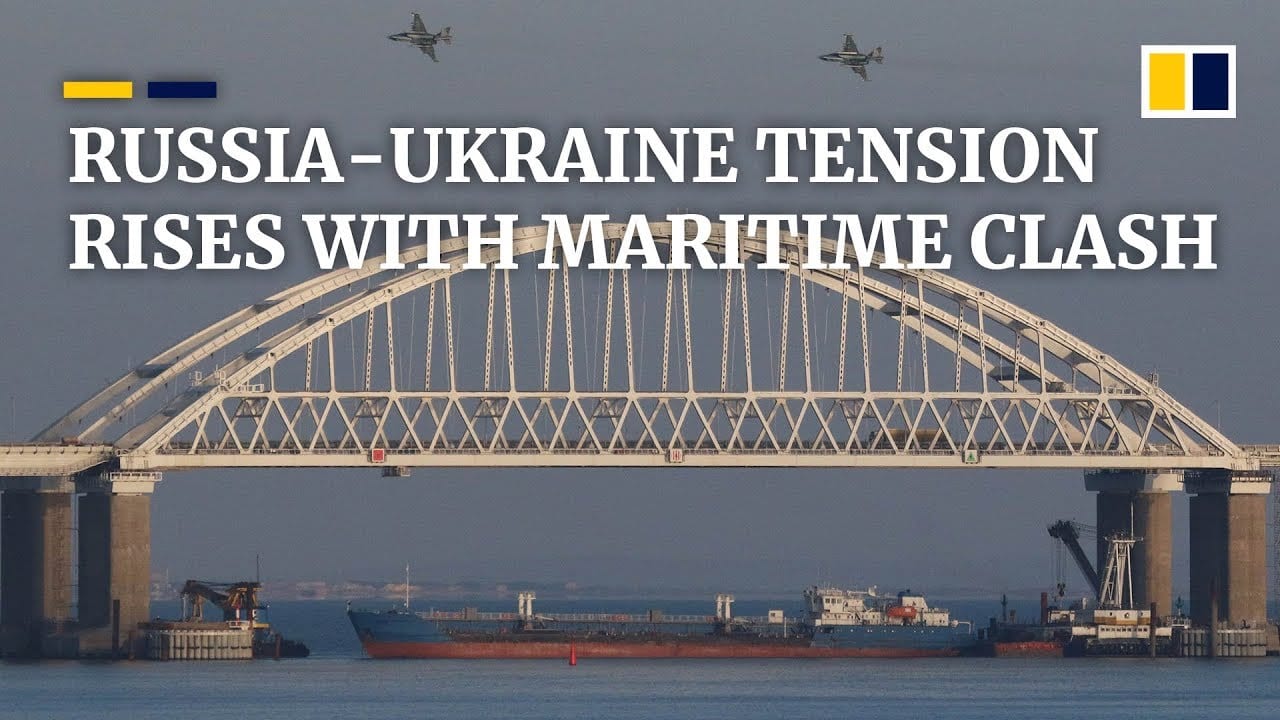
Russia extends its aggression in the Azov/Black Sea region
Act of military aggression by Russia near Kerch strait constitutes the new phase of Russian aggressive policy of de-facto occupation of Azov Sea. On November 25, 2018 Ukraine’s warship group was blatantly attacked by the Russian border guard patrol near Kerch strait. Three Ukrainian military ships were shot at and seized by the Russians in neutral waters on their way back to Odesa port. 23 Ukrainian servicemen are captured (the navy suffered casualties: 6 wounded, including 2 in critical condition).
Russia’s provocations clearly fall under the UN definition of the aggression. The United Nations Convention on the Law of the Sea guarantees the rights of Ukraine as a coastal state in waters near the Crimea and the Kerch Strait. Thus, according to Article 2 of the Convention, sovereign rights of Ukraine as a coastal state extend to its territorial waters (within 12 miles) around the Crimean peninsula, even despite unlawful temporary occupation of it by the Russian Federation.
The actions of the Russian Federation regarding the prevention of the passage of warships in the territorial sea of Ukraine, including the attack on the Ukrainian naval forces’ ship «Yani-Kapu», constitute a violation of Article 2 of the Convention.
The next step of Russia on November 25, 2018 was blockade of three Ukrainian ships in the Kerch Strait. The Russian Federation artificially created obstacles for the passage by ships through the Kerch Strait, which is an international duct in the sense of Article 38 of the UNCLOS, and therefore Russia’s actions constitute blocking of navigation through international duct, which is a violation of Articles 38 and 44 of the Convention.
Actions in the Kerch Strait are also a violation of the bilateral Agreement on the use of the Azov Sea and the Kerch Strait, which envisages free passage of the parties’ warships through the Kerch Strait. By its actions, Russia has actually recognized that the Treaty is null and void.
Ukrainian ships have left the Kerch Strait and were moving towards Odesa, after their exit from the territorial waters in the exclusive economic zone of Ukraine they were attacked, stopped and then detained by the Russian Federation. These actions constitute a flagrant violation of the United Nations Convention on the Law of the Sea, namely the interference with and prevention of free navigation and freedom of navigation in the exclusive economic zone, guaranteed by Articles 56, 58, 88, 92, as well as violations of the immunity of warships, envisaged by the Article 32 of the UNCLOS.
The attacks by the Russian Federation on the Ukrainian naval forces’ ships, which moved towards the port of Berdyansk initially in the Black Sea, and then also in the region of the Kerch Strait, constitute another fact of ongoing aggression against Ukraine.
In accordance with UN GA resolution 29/3314 of 14 December 1974, notwithstanding the declaration of war, the act of aggression is an attack of the armed forces of one country on land, sea or air, or on the naval or air forces of another country (article 3d).
Martial law is a critically necessary response to Russian escalatory policy. Russia is trying to turn it into its internal lake by blockade of Berdiansk and Mariupol and by military buildup in Crimea and Azov Sea. Russia has switched from hybrid to overt military aggression. Shooting to kill in Ukrainian sailors and ramming Ukrainian boats, which conducted a legitimate and peaceful maneuver, is a blatant and barefaced use of military force.
As Ukraine enters a critical phase of elections, Russia increasingly activates its hybrid toolbox. Military escalation is one of such tools of meddling.
Fake elections in Donbas in November 2018 reset a spiral of instability and violence. Last time in 2014 fake elections became a preparation for Debaltsevo full-fledged attack.
Actions in the Kerch Strait indicate the creation of prerequisites for the complete blockade of the seaports of Berdyansk and Mariupol, as well as the preparation for a possible full blockade of the Black Sea coast of Ukraine by Russia.
Thus, on November 26, 2018, the Parliament of Ukraine adopted the martial law for limited period – 30 days, in 10 regions of Ukraine in order to create all prerequisites for proper counteraction to Russian acts of aggression.
Prompt and consolidated international reaction must ensure that Russian aggression will not go unpunished. The Russian Federation is fully responsible for the escalation in the Azov and Black Seas and undermining the peaceful settlement of the Russia-Ukraine armed conflict. On the request of Ukraine, the special meeting of the UNSC was held. Nobody believes Russia, isolation of Russia is obvious.
Dramatic escalation of the situation in the region needs a prompt reaction to:
demand Russia to immediately release 23 captured Ukrainian soldiers and 3 ships;
de-escalate security situation;
ensure sustainable unblocking of the free crossing of the Kerch-Yenikale canal and freedom of navigation in Azov sea according to international law;
elaborate of a new set of sanctions aimed at addressing the situation in the region, including against the Russia’s Azov ports, imposition of additional individual, economic and sectoral sanctions;
ensure permanent posture of allies, including NATO military ships, in the Black Sea;
conduct with NATO joint trainings in the Sea of Azov;
provide Ukraine with effective radar to monitor the maritime situation in the region, as well as with naval defense systems;
establish OSCE SMM monitoring in the area of the Sea of Azov and Kerch strait;
support Ukraine’s UN GA draft resolution on the militarization of the Crimea and the Sea of Azov;
Escalation of aggression by Russia is a clear evidence that NS2 should be immediately blocked. If Ukraine will lose its significance as a transit country may encourage Putin to wage a full-scale war to take over Ukraine.
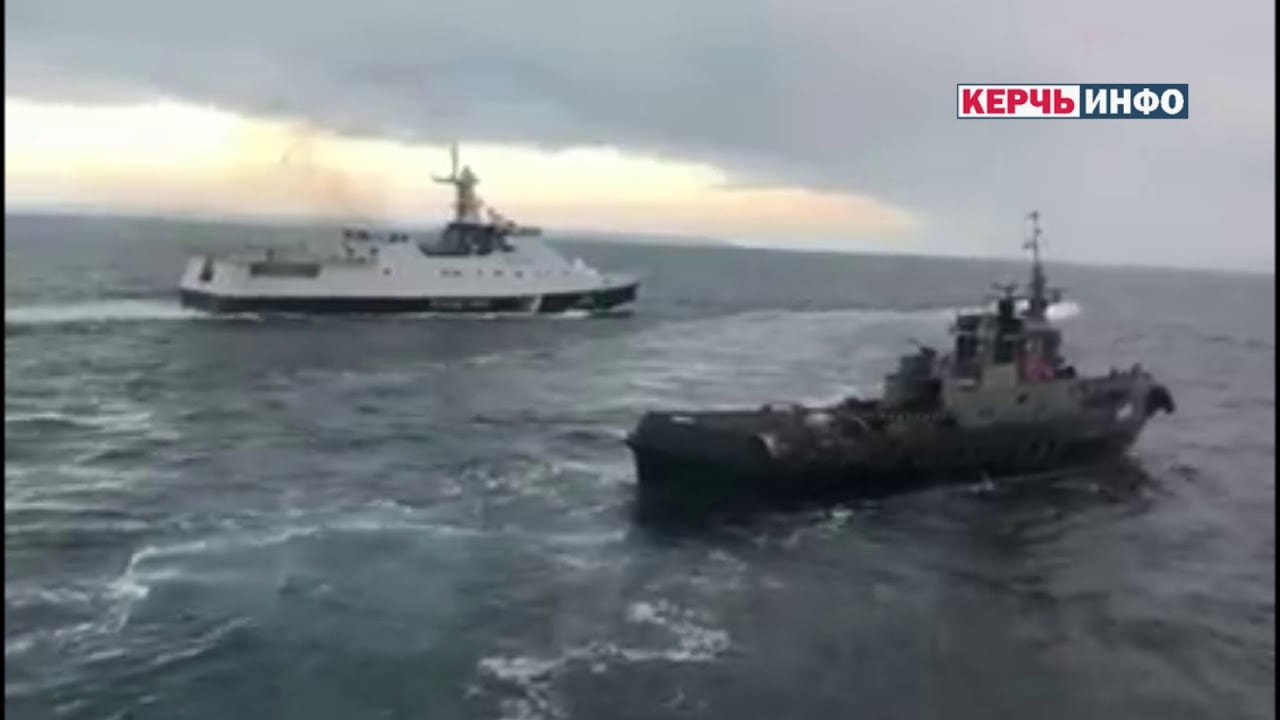
n November 23, 2018 the Ukrainian Navy boat group (small armored artillery boats “Nikopol”, “Berdyansk” and inshore tugboat “Yani Kapu”) started planned transit from the naval deployment – port of Odessa to the port of Mariupol. Ukrainian Navy boats were carrying regular armament without any specific means on board. The route and procedure were the same as of September, 2018 “Donetsk” and “Korets” vessels’ transit.
On November 24, 2018 during the naval march Ukrainian commander received Russian authorities’ notice concerning the closing of navigation in the Kerch Strait. International Centre for Navigation Control (Spain) did not confirm this notification.
On November 25, 2018 the commander of the Ukrainian Navy boat group requested twice the maritime control officer from Kerch port concerning passage through Kerch Strait. He did not receive the answer. Later the maritime control officer from Kerch port directed the Ukrainian Navy boat group to the so-called waiting area. It was stated that in some time Ukrainian vessels would be informed on the Kerch Strait passage procedure.
Approximately at 8:30-9:00 a.m. Russian coastguard ship made a ram attack against inshore tugboat “Yani Kapu” and damaged it. Besides, Russian vessels blocked Ukrainian boat group to prevent them to render assistance to a damaged vessel.
https://www.youtube.com/watch?v=0fpFNSUC9p4
All the time during a provocation against Ukrainian Navy boats, Russian vessels were attempting to provoke Ukrainian seamen to open fire. Moreover, by 01:00-02:00 p.m. Russia used helicopters to patrol and convoy Ukrainian vessels.
From 1:40 p.m. Russia has physically blocked the passage beneath so-called “Kerch bridge” having located there a tanker and later a cargo ship.
After 7 p.m. due to the impossibility to pass the Strait, Ukrainian Navy ships headed back to exit a Kerch Strait. They were immediately followed by a group of 8-10 FSB Coast Guard and Russian Black Sea fleet vessels.
Approximately at 20:25 after the exit of Ukraine’s Navy boat group from 12 mile zone Russia’s Cost Guard boats opened fire on defeat. “Berdyansk” and “Nikopol” were damaged and lost the course. After that Ukrainian vessels were forced to stop and seized by FSB special forces (20:35-20:50). 6 Ukrainian military seamen are wounded. Also 1 boat of FSB Coast Guard damaged.
Ukraine has proven evidence that Russian aggressive actions were planned and authorized by the top Russian military officials. In particular, the Russian military videos in YouTube testifies that a ram of the Ukrainian tugboat “Yanni Kapu” was purposeful, and actions of the captain of the Russian patrol ship were oriented to inflicting harm to the Ukrainian vessel and crew.
https://www.youtube.com/watch?v=xpdlGAweVu4
Aggressive actions of the Russian military authorities correspond in full with the definition of aggression set forth in the UN General Assembly Resolution 3314 (XXIX).
Now Russia cynically tries to shift all responsibility to the victim of the aggression, consciously manipulating the facts and ignoring all evidence.
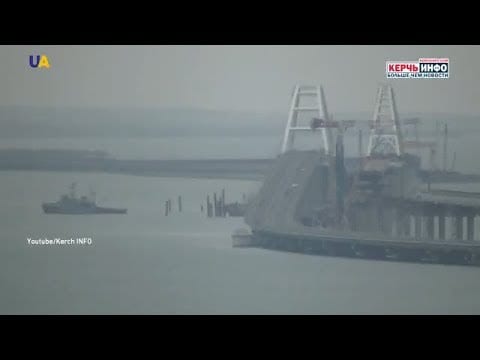
How do you think, what is the most difficult to prove?
The president of the Russian Federation Vladimir Putin presented to the whole world his vision of the answer to this question. It appears the obvious things are the most incredible to prove.
All Russian actions aimed to break down the international law and stability in the world hide conveniently behind this Putin’s formula.
Let’s take illegal annexation of the Crimea. The Kremlin presented it as the Crimeans’ will and a return of the peninsula into the motherland’s fold: “Any violence! Fair referendum and point!” However, there are many proofs that it is nothing, but the armed occupation of the other state’s territory. “Prove it!” – Putin is mocking.
Another example – unleashing of armed conflict in Donbass and creation of the so-called DPR/LPR separatist entities. Everything is obvious, once again. There is a set of evidences of direct Russian military aggression and presence of the Russian servicemen there. The Kremlin says: “We are not present there. Prove it… Only miners and peasants are at war with the Ukrainian junta, using equipment and arms which they bought via the Internet in the world Army Surplus…”
What about civil Boeing? Who did shoot down it? Anyone, beginning from drunk Ukrainians and finishing by aliens, but only “not us”. Although, the obvious facts will become a trial subject with the obvious verdict soon.
Apparently, using of the chemical weapon in the Great Britain is evident! We can hear again: “It’s not us. Prove it…”
What are we dealing with? The Free World put up with it. Sanctions have been declared for conscience’s sake. Nevertheless, cooperation with the aggressor continues: Northern and Turkish Streams are being built; Mr. Putin is being received as an honorable guest at weddings and festive events, orban, zeman, salvini dote on Putin.
Finally, there is a new fact of the Kremlin’s aggression against the sovereign state. Having annexed the Crimea, thanks to the constructions of Kerch Straight Bridge (besides illegal), Putin cynically realizes the project of the Azov Sea blockade. Naval Forces of Russia carried out a naked military action against the Ukrainian ships to receive a formal reason for full closing of the Kerch Strait and blockade of the Ukrainian ports on the Azov Sea.
Everything is extremely obvious! This time things have gone far enough and presented a risk of a direct military clash with Ukraine with unpredictable consequences. Dear Sirs in Brussels, Bonn, Paris and Washington, is it obvious for you now that you should react rigidly to this accident up to rendering effective military support to Ukraine?
Or do you still need any more evidence else?!
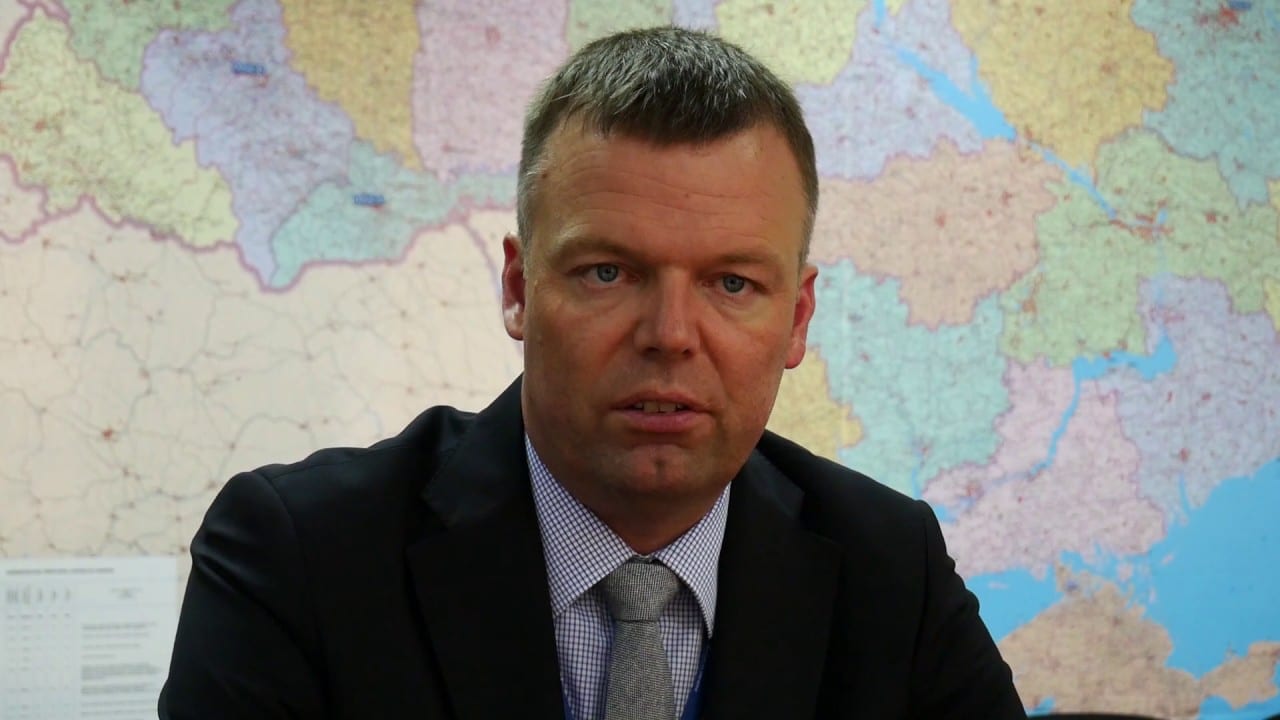
In his interview to the Foreign Policy Alexander Hug, Deputy Chief Monitor of the OSCE Special Monitoring Mission to Ukraine declared lack of direct evidence of participation of the Russian Federation in Donbass conflict and noticed that everyone is free to buy the Russian military uniform in any shop. However, remarkable it may be, the OSCE Representative made such statement the day before his resignation. Such unexpected and uncovered tribute to Kremlin certifies to the fact that Hug’s statements are synchronized with Kremlin “grey eminence”, while OSCE’s objectivity and ability to perform their function in Donbass properly have often raised great doubts.
Since Mr. Hug’s statements do not hold water, such unprofessional opinion declared on behalf of the whole monitoring mission causes significant damage to the OSCE image and confirms its engagement as well as the fact that formerly authoritative and solid organization discredited itself and called into question its ability to perform the role which historically was assigned to it. The use of this organization’s authority for dissemination of unveracious data and subjective data interpretation, is unacceptable for heads of such level.
Hug’s statement contravenes EU shared position concerning the Russian Federation. His words also call into question advisability of sanctions policy against Russia and weaken EU unity in a question of counteraction to aggressive Kremlin actions. Hug’s speech appeared right after the resolution of the European Parliament on strengthening sanctions in case of aggravation of a situation in the Sea of Azov as well as declared support of sanctions policy by the Austrian Foreign Minister K. Kneissl (Austria presides in the EU Council).
However, there are a lot of questions to the OSCE aside from that. One should ask, why monitoring mission was not admitted in due time to the place of MH-17 crush, as well as to the places of shootouts and Zakharchenko murder while the Russian intelligence agencies and the Investigative Committee of the Russian Federation played there the master. By the way, daily reports of the OSCE Monitoring Mission constantly record Russian military equipment, weapons and military personnel in the combat zone.
Documents recorded movement of motor columns, particularly equipped with antiaircraft mounting, through uncontrolled sector of the Ukrainian-Russian border even as of October 23 this year. At the same time there were no official statements and claims from the OSCE in this regard.
Resignation of the Swiss official was not overlooked by ORDLO (Separate regions of Donetsk and Luhansk territories). D. Pushilin, leader of Donetsk terrorists, gave positive estimate to Hug’s performance and noted that positive moments of cooperation prevail over negative ones.
One should also bring to notice that should be a penultimate interview of Alexander Hug as the first deputy head of the OSCE Special Monitoring Mission in Ukraine. The last was scheduled in temporarily occupied territory of Donbass. Such sequence serves as unambiguous hint about those whose allowance was worked out by this official of the international organization.
As we know, while working for the OSCE (Bosnia and Herzegovina, Kosovo, the Gaza Strip) Hug maintained close contacts with Russian representatives in this organization. It is quite possible that the latter offered Hug support and assistance in further career growth within the organization or within other international authorities upon termination of his functions in the OSCE. We will keep an eye on it and get to know in the course of time.
It may also happen that Hug became a target for blackmail by the Russian intelligence agencies. As is known, in July, 2018 internal documents of the OSCE Mission to Ukraine, including briefs on mission members (personality traits, tendency to alcohol, financial position, interest in the opposite sex) and Hug’s communications profile. The OSCE Mission did not report the results of investigation.
We may only hope that the end of Hug’s commission in monitoring mission and his substitution with Mark Etherington from Great Britain will favorably affect objectivity and overall performance of the OSCE Special Monitoring Mission in Ukraine. To the best of our knowledge, communications with the Russian intelligence agencies and Kremlin involve further consequences for engaged foreign politicians and heads of various international organizations. The new Chief Monitor of the OSCE Special Monitoring Mission to Ukraine and other officials and representatives of influential international organizations should think thoroughly about the aftermath of “close” communications with the Russian Federation and their intelligence agencies. Short-term benefits can turn into much bigger losses for them and for the European safety.
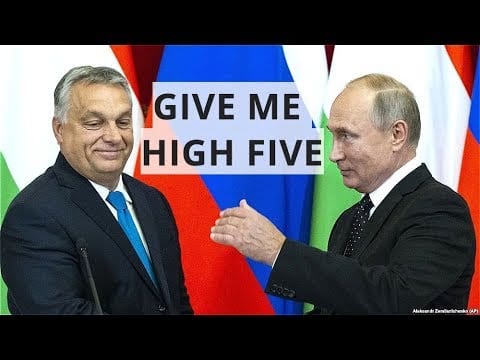
Today’s EU is far from its former unity: we are increasingly confronted by those opposing the idea of an “open society,” but who are ready to live in a confederation format, where a certain state will play the major role rather than the Union. And it was not Brexit that gave rise to such appeals – it was the ascent of autocratic leaders across Eastern Europe.
The most striking example is Hungarian Prime Minister Viktor Orbán – someone who once so actively fought against the Soviet past, suddenly become an actual advocate of the Soviet-style present.
Hence, the harassment of mass media, neglect of independent judiciary, high profile corruption, with Orbán increasingly resembling Vladimir Putin, or more precisely, becoming Putin’s even smaller copy. Therefore, there is no surprise that someone, who back in 2009 so zealously fought with the Russian gas monopoly and resisted the seizure of Hungary’s chemical facilities, just handed over to Russia the country’s entire nuclear industry. Moreover, now he is demanding that Brussels not prevent Russian gas flows through the southern pipe to Central Europe.
At the same time, the Hungarian conservative, together with the Italian populists and the Czech opportunists, keep insisting on the need to lift sanctions imposed against Russia in connection with the Ukraine conflict.
Let’s ask ourselves a question: can we lift sanctions today, allowing Russia to pursue its aggressive policy in Ukraine? However cynical it may sound, it’s no. We can’t. That’s because in this case, we run the risk of facing a powerful adversary, willing to restore their former Soviet influence.
Ukraine again – however cynical it may sound – remains a kind of an outpost against Russian destructive policies and aggression threatening all civilized Western democracies. Everyone seems to understand this, except for Viktor Orbán.
The head of the Hungarian government is not just trying to play along with Putin in his campaign to weaken the EU. He also intends to take part in dismembering other countries, to make many Hungarians’ dream come true, that is, to reunite all the lands that Budapest claims were illegally snatched from Hungary with the Treaty of Trianon signing. Now we see that Orbán is set to start with the Ukrainian Zakarpattia.
Hungary has long been working out the idea to return territories the country has lost throughout history. Judging by the outcome of the latest parliamentary elections, most Hungarians support the project. It’s us, Europeans, who are partly to blame: for the past 15 years, the EU has done nothing to change the ideology in Hungary; we failed to convince both the local government and the people there of the advantages of globalization and open society. It turns out, not everything rests on the economy, market relations, and democratic values.
Hungary aggressively protects their interests in Serbia, where it formed a broad territorial and full-fledged national-cultural autonomy in Vojvodina; Slovakia, where Budapest currently avoids unnecessary confrontation trying to enlist Bratislava’s support in his confrontation with Brussels and Romania, where the main goal is to regain Transylvania (Szekely Land).
Why did the Hungarian Prime Minister choose Ukraine and its western lands (Transcarpathia) as his main target? It is because the Crimea annexation happened. Whether anyone likes it or not, Russian seizure of the Ukrainian peninsula has set a precedent. Anyone today could take advantage of it – both at the borders and in the heart of Europe. This is also about a major prevalence of Hungarian communities living in several areas of the Transcarpathian region. An important note: it is only a few areas within a particular region. And, of course, these communities’ financial dependence on Budapest is on the table.
Nevertheless, let’s take a look at the real numbers. Of 1.2m people living in the Ukrainian region bordering Hungary just over 150,000 are Hungarians. This is not the majority seen in the Serbian province of Vojvodina – on the contrary, it is a clear minority. Does this mean that Ukraine must protect the rights of any ethnic group, including the Hungarians? It definitely does. However, this in no way means that Kyiv should put the interests of any minority above the law.
The conflict between Budapest and Kyiv began in 2017, after the Ukrainian parliament passed a law on education. The new legislation has seen enough criticism and support at the same time, while the Venice Commission found no violations in its text concerning the infringement of national minorities rights.
Indeed, the law defends the Ukrainian language, making it the main language of instruction at schools. Starting from middle classes, all schools are obliged to teach in Ukrainian, while some classes can be taught in the languages of EU states (one of which is Hungary, I must recall).
The Orbán government responded to these initiatives with an ultimatum, blocking the highest-level meetings of the NATO-Ukraine Commission, turning them down to the level of ambassadors, while Hungarian foreign minister Peter Szijjarto threatens to block Ukraine’s EU integration process under the Association deal. At the same time, Hungary allocates millions of euros to support pro-Hungary political movements in Transcarpathia that is, brazenly interfering in the neighboring state’s internal affairs – something Szijjarto does not mention in his statements on Ukraine.
Budapest also funds Hungarian organizations abroad through charities, organizes seminars and round tables, attracting the youths. Through the Robert Schumann Institute in Budapest, Hungarians also fund experience exchange programs for young Ukrainians living in the bordering region. In fact, this is about training young politicians who will one day become part of local governments and promote Hungarian interests.
What is the most surprising here is that, while failing to secure any support in Brussels, Budapest found it in Moscow. Hungarian officials met with their Russian counterparts, to slam the Ukrainian language law. Moreover, Russia’s Deputy Foreign Minister Vladimir Titov agreed with Peter Szijjarto to jointly oppose Ukraine’s legislative moves and hinder its educational reform.
The saddest thing though is that this, and many other things, has being done under the cover of the EU. Yes, it is precisely their experience of integration into the EU that the Hungarian authorities use to cover up their meddling in another country, which is not even an EU state. A very simple question arises: would we really choose to be complicit in Viktor Orbán’s outright violations?
We must definitely avoid a conflict being created and escalated on the EU borders. However, it’s time for the European Union to look into the ways to fix the situation. We have seen a rather dangerous move by Hungary whose consul has been openly handing out passports to representatives of Hungarian minority living in Ukraine. The danger stems from the fact that in the Ukrainian territory, in contrast to a number of EU states, dual citizenship is officially banned.
Budapest, once so wary of Ukraine launching protectionist policies, has now become the very force pushing Kyiv toward the adoption of the new legislation— the new language bill, which had already passed its first reading in the Ukrainian parliament. Now Ukraine once again hears Hungarian officials voicing an ultimatum. This means that escalation is inevitable, with the next step of the Ukraine authorities possibly being passing changes to the law on citizenship.
It would be less complicated though if it were all about citizenship issues and Hungary’s will to boost population numbers. In fact, we are well aware that it’s not Hungarians who Viktor Orbán and his government believe are so important – it’s the lands that used to belong to Austria-Hungary and a revanchism-focused flirting with voters. Indeed, Orbán does need a cheaper labor force, but only those who always return home, to Western Ukraine. What he really craves for is a territory that will later seek to become part of the Great Hungary. This is the reason why the Hungarian government has also been campaigning among the Ukrainian nationals living in the bordering region.
Meanwhile, the situation could spin out of control, which is exactly what Moscow seeks to exploit. The Hungarian government recently approved a classified plan on Ukraine. It allows Budapest to deploy troops across the Ukrainian border without NATO’s consent in case an “emergency” arises.
Interestingly, a Hungarian intelligence agency recently received a number of specific instructions: to strengthen its operations not only in the Transcarpathian region, but also in Ukraine as a whole; and create conditions for economic and political expansion in areas where Hungarians reside. It has also been ordered to strengthen partnership cooperation with Russian intelligence.
At the same time, the Russian Wolf International Special Combat Training Center has been boosting its presence in Hungary. Its founder is a Russian national who has been put on the U.S. sanctions list. Most importantly, the organization has already opened a real network of cells.
This is happening amid Hungary’s efforts to boost the total number of military reservists. Hungarian defense minister István Simicskó this August announced the need for 20,000 reservists to join the already 30,000-strong army. And this is despite the fact that last year the Hungarian army started the practice of signing up Hungarians living beyond the country’s borders, most of them, residents of Ukraine.
Now let me ask you the most important question that we all will soon face. What shall we do if a conflict breaks out on the Hungarian-Ukrainian border? What about the EU and NATO treaties? After all, we are now talking about the destructive actions of a NATO ally and an EU member state which maintains political and economic ties with Russia, in relation to a non-EU and non-NATO state which at the same time has been actively repelling the Kremlin’s aggression in close proximity to our eastern borders. So what do you think? Could an outside player be able to provoke a conflict, as it had already happened in history?
Don’t you see that we finally have to think about our own safety? Perhaps it is time that we engage in the negotiation process and take a closer look at the general situation in Hungary. These are all questions demanding answers. Today.
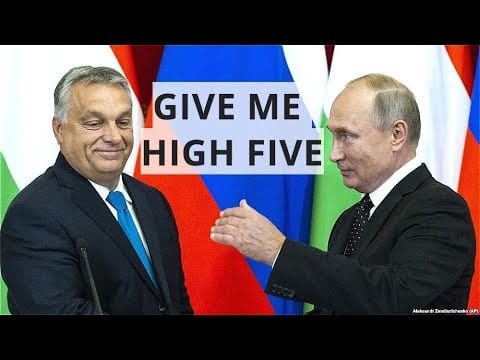
“All is fair in love and war”, as the proverb says. Let’s leave aside love and turn regard on war. Modern wars increasingly often find the battlefield in the economic, diplomatic, religious and other spheres. Even ecology is not an exception for confrontation. However, let’s start from pre-history.
The diplomatic scandal around the ethnic population of the Transcarpathian region of Ukraine and their rights has been smoldering for a long time between Ukraine and Hungary, particularly the cn nationalists led by Prime Minister Viktor Orbán. Recently it became known that the Hungarian consulate issues in secret their national passports to the Ukrainian citizens. Naturally, such actions were condemned by the European institutions and the leading states. In response, the Hungarian side repaired to play on ecological safety of Europe.
River Tysa, which is one of the largest inflows of Danube, originates in Ukraine and before falling into Danube goes through several countries including Hungary. Hungarian defenders suddenly took care of the water condition originating from the Ukrainian territory. They found huge amount of heavy metals, harmful chemistry and household waste, in particular plastic bottles there. That’s why it became a new stumbling block in Ukraine-Hungary relations.
Today main ‘accuser’ of Ukraine is Hungarian eco-activist Gergely Hankó. He was also among organizers of unusual performance: making boats and canoe from the bottles fished out of the river and rafting down the river on them. The future of these “means of swimming” is unknown, possibly, they continue poisoning river banks in a more structured form.
The main Mr. Hankó’s argument against Ukraine is a case of spring, 2015, when a large volume of garbage fell into the river in consequence of heavy floods. The Hungarian part restricted themselves to recording the event and taking many shots of dirty river while they turned on the HPP taps and made garbage a problem of their neighbors. At the same time, both Ukrainian and Romanian experts reported about no registered fact of cross-border pollution of the river basin.
We can’t say for sure whether Mr. Hankó’s activity has strictly mercantile features. Possibly, that is manifestation of his altruistic nature, and he really bother about river condition. However, the actions of Hungarian government are by no means altruistic. They have their own goals, the main among which is to retain power. To this end, they use such drastic measures as issuing Hungarian passports to Ukrainians with a view to draw national minorities as their main electorate in advance of upcoming elections. For the same purpose, they make advances to nationalists and are ready to confront the whole Europe and NATO.
Frankly speaking, Ukraine and Hungary are on the brink of mutual expulsion of diplomats that is a very serious step. However, position of Hungarian part in this conflict is the most unflattering, due to propaganda of the nationalist ideas, confrontation with other states, and many other facts. Here tame “ecologist” is needed, he will tell how Ukraine poisons the European rivers and why it is impossible to conduct constructive dialogue with them as their authorities don’t care about citizens of other states. By the way, ideas of ecological safety in Europe advert more and more supporters.
It’s too prematurely to give forecasts as to the end of this confrontation. Most probably, the Hungarian government relies on the support of Russia and their allies in Europe, therefore behaves so aggressively. The main thing the European politicians may assure today is prevent making them fool by high-minded statements, which disguise quite mercenary incentives.
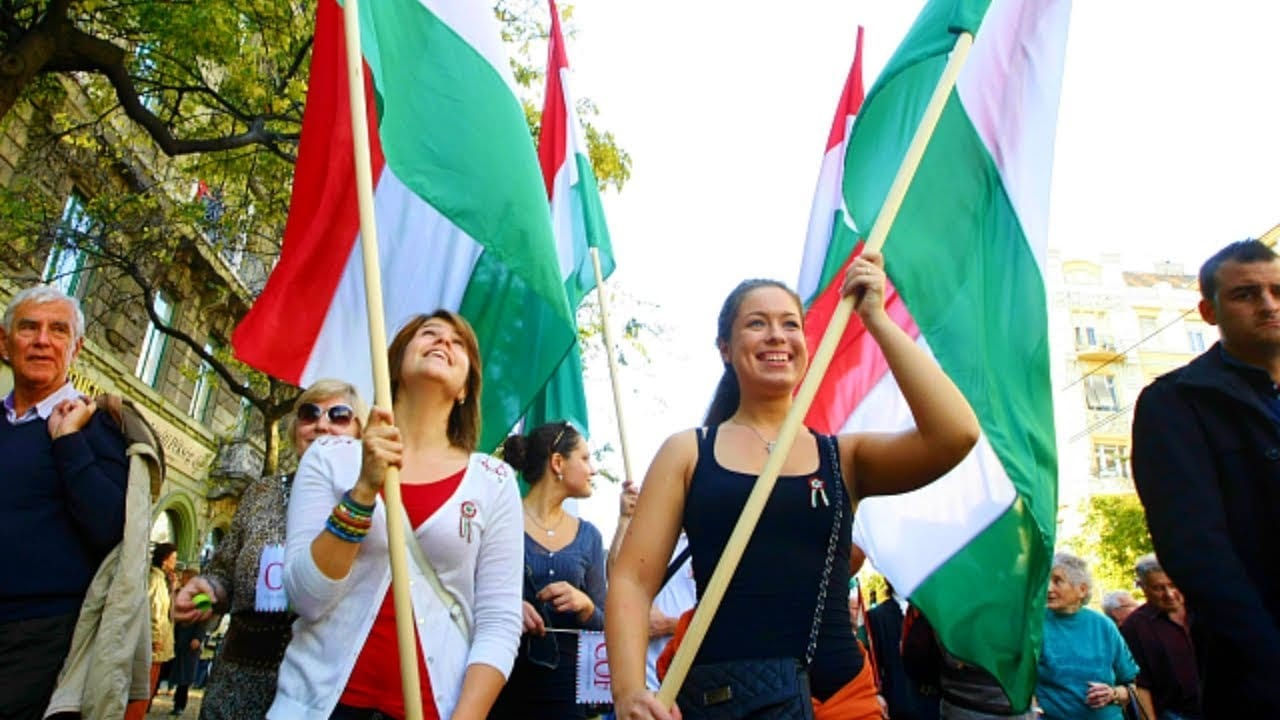
Prime minister Viktor Orbán and Fidesz-CDPP party led by him continue exaggerating a narrative of protection of the Hungarian ethnic minorities abroad.
The Hungarian diaspora, and particularly 150-thousand one in Ukraine, is considered by present Hungarian authorities not only as the lever of Budapest’s influence on the neighboring states, but also as a domestic policy factor. Playing this card to a great measure enabled Viktor Orbán to get win this April on the parliamentary elections in Hungary. Today, as far as the government cannot boast of economic achievements and increasing of social standards of living, in times of blanket attacks on peoples’ democratic rights and freedoms, which may entail sanctions from the EU, exploitation of the populist idea of the protection of rights of fellow nationals abroad is aimed at people’s distraction from internal problems by means of developing the image of Hungary’s enemy. Speaking about supposed oppressions of Hungarians abroad, the authorities try to play upon patriotic heart strings of their nationals and urge them to fight for the rights of fellow nationals abroad under their command. That is the manner of the Russian president Vladimir Putin, who became a role model for Orbán.
Aggressive rhetoric and rough pressure upon neighbors became the landmark of present Hungarian authorities. And now it is a turn of Ukraine to fall under virulent abuse after Slovakia and Romania. Recently we have witnessed another aggravation between Hungary and Ukraine regarding the so-called passport issue (previously they were inflicted by the language paragraph of the Law of Ukraine “On Education” and appointment of the “authorized minister” by Hungary, who should be responsible for the development of the Transcarpathian region of Ukraine – i.e. the territory belonging to other state).
Wide-scale hidden pasportization of Hungarians from among Ukrainian citizens was given a long-awaited publicity following YouTube video on delivery of the Hungarian passports to citizens of Ukraine in the Hungarian consulate in Berehovo (Transcarpathian region of Ukraine).
Instead of extinguishing the conflict in response to the justified demands from Ukraine to cease outraged violations of Ukrainian laws (the dual citizenship is forbidden in Ukraine) Budapest decided to heighten tensions. Foreign Minister of Hungary Peter Siyarto accused the Ukrainian party of fostering anti-Hungarian spirits in society, considered video lawful and threatened to slow down European integration of Ukraine (earlier Viktor Orbán’s cabinet has already blocked a meeting of the NATO-Ukraine Commission). Such a response confirms once again Hungary’s abuse of membership in EU and NATO. Moreover, through their nonconstructive behavior Hungarian authorities try to involve the above-mentioned organizations in the conflict with Ukraine.
Inflating the farfetched problem of oppression of Transcarpathian Hungarians by Ukraine, Viktor Orbán and his office pursue distraction of attention of their nationals from miscalculations in policy towards foreign Hungarians.
The actual situation strongly differs from what Budapest wishes to present. Having relied on “soft power”, and actually – on bribery of Transcarpathian Hungarians, the government (which promotes programs of small business funding, education exceptionally in Hungarian, construction of infrastructure and community facilities) reckons on loyalty of local community on future elections and holding ethnic Hungarians of Transcarpathia within the present territory of accommodation.
However, having squandered tens of millions state budget euros for the last years Budapest has not obtained desirable effect. On the contrary, the main result of such PR-policy was critical reduction of Hungarian population in Ukraine, at the same time the rest were marginalized.
After they had received the Hungarian passports, Hungarians of Transcarpathia (by the way, people of active age, who obtained profession and education), moved to Hungary. However, by no means all of them remained in Hungary, a great part moved from European, but nonetheless poor country, to more successful countries of the European Union.
Reduction of a number of ethnic Hungarians (not only in the Transcarpathian region of Ukraine, but also in other neighboring states) called into question claims of Budapest and intention of Viсtor Orban’s government to fight for strengthening of the Hungarian influence. Thus, there is no recourse for present Hungarian authorities in their attempt to avoid the responsibility for aftermaths of their populist policy towards the Hungarian ethnic minority as an element of domestic policy, but to strengthen the aggressive radical rhetoric promoting reinforcement of xenophobic spirits in the Hungarian society and to resort to frankly unfriendly actions in relation to Ukraine in the EU and NATO.
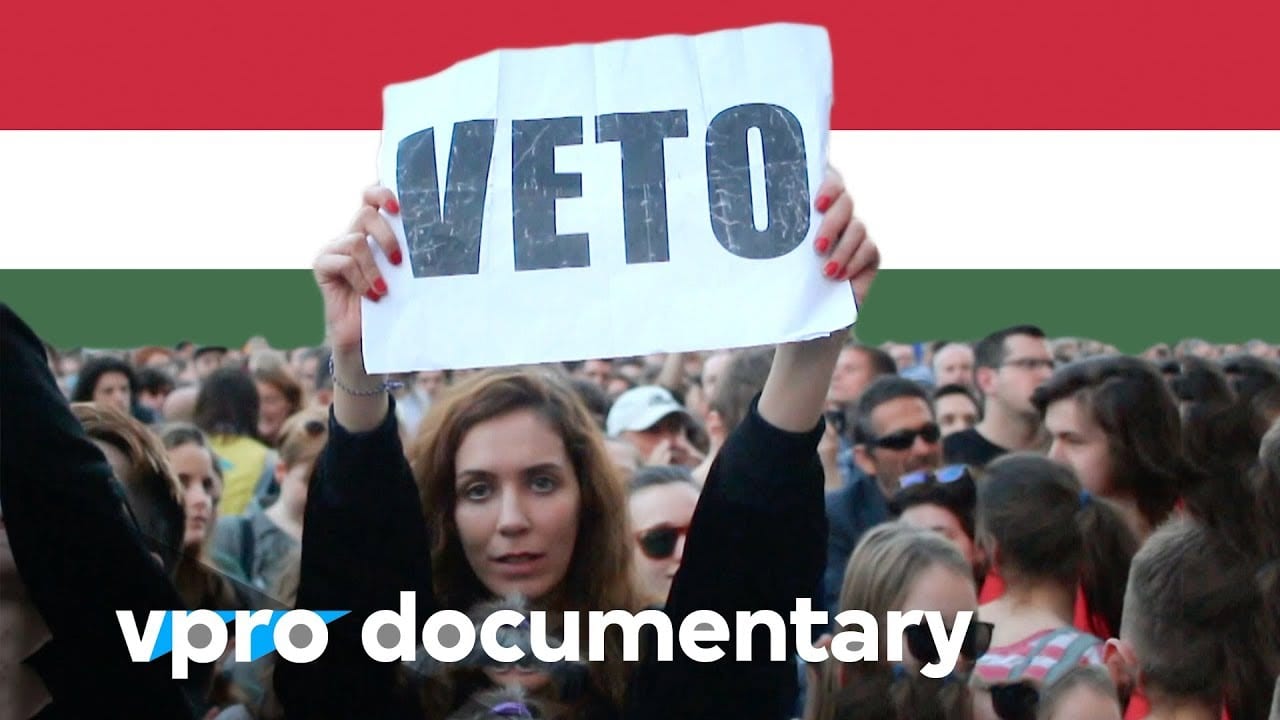
Prior to parliamentary elections of 2018, the Fidesz Party led by Prime Minister Viktor Orbán competed with Jobbik Party in erecting as many monuments as possible to dictator Horthy (who supported the union with Germany during the WWII and occupied the Carpathian Ukraine in 1939). Those Hungarians having dual citizenship and living abroad received the letters in the name of Mr. Orbán calling them to register on the voting Internet platform “to determine the fate and the future of the states of the Carpathian basin”.
It seems that votes of the Transcarpathian Hungarians who keep Ukrainian, Hungarian, and sometimes even Russian passports in one drawer are rather valuable for ruling Hungarian Fidesz party. Viktor Orbán and his colleagues are ready to give budgetary support to a great many of public organizations or scientific institutions, not only Transcarpathian, against these votes.
These two forces still compete to turn citizens of Ukraine of the Hungarian origin into their additional resource in political struggle for the power. The present Prime Minister uses an issue of Transcarpathian Hungarians to maintain rating, being afraid of opponents from Jobbik to seize an initiative. Such support of ruling party by foreign Hungarians is very generously funded from the state budget, which in turn attracts financing from the EU budget.
Funds allocated for the support of some Hungarian organizations in Ukraine show that Fidesz knows well enough the importance of “buying” sympathies of foreign Hungarians. In particular, the government Resolution of 27.12.2017 No. 2061 “On Allocation of Grants to Some Foreign Organizations” in support of programs and activity of the foreign Hungarian organizations provides for the lump sum of 33,4 billion forints (above 103 billion euro). The major part of it – 2,54 billion forints (above 7 billion euro) would be assigned to support the Hungarian organizations of Transcarpathia. Hence Transcarpathia Hungarian Institute charity foundation received 2,2 billion forints (about 6,7 billion euro), while Society of the Hungarian Culture of Transcarpathia – 340 million forints (above 1 billion euro). In addition, in 2018 Budapest allocated 1 billion forints (about 3 billion euro) for implementation of “2018 – Year of Foreign Hungarian Families” program that provides support for the enterprises, healthcare institutions, trainings and organization of camps.
In chase of foreign electorate Fidesz representatives resort even to more interesting innovations. For example, the government of Hungary adopted a Resolution of 02.01.18 No. 457 amending the Law XLV of 1994 “On military care” that entitles the foreign Hungarians including those living in Transcarpathia to compensations for relatives of the Hungarian servicemen who were seriously injured or died, particularly during the WWII.
In this context, the prerequisites to be met by foreign Hungarians to receive additional funds from the Hungarian budget are more than illustrative! Compensation claimants are actually required to prove that their immediate family (spouses, parents, brothers) served in Royal Hungarian Army and died during military operations – from March, 1939 to October, 1944 (during the Hungarian occupation of Transcarpathia). This means they shall find and bring to the Hungarian consulates in the territory of Ukraine quite controversial documents proving that their relatives served in the Hungarian army, which not only waged a war on the side of fascist Germany, occupied the Ukrainian lands, but also became famous for their brutal treatment of Ukrainians in occupied territories. Applications for compensation shall be served to Hungary consulates in Uzhhorod and Beregovo. The only document you require is certificate of the foreign Hungarian. In this case, you may be granted a monthly pension that is 30% of the minimum Hungarian pension.
All these facts show that, expressing such generosity to Hungarians of Transcarpathia and buying their votes, Orbán’s government does not hesitate to boost the coffers at the expense of EU budget. Taking into account “grants” to the Hungarian diaspora, the European taxpayer helps Viktor Orbán to stay in power and pays his populism.
In his turn, Viktor Orbán aptly uses EU democratic institutes in his mercenary interests. He does not hesitate to manipulate the issues, which are sensitive for the European Union, for example, migrant situation, makes advances to Russia, opposing prolongation of sanctions, and puts pressure upon Ukraine, putting on the stake progress rate of their EU and NATO accession. Perhaps in such a manner he wants to draw attention of the power players and escape political isolation.
